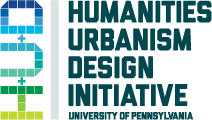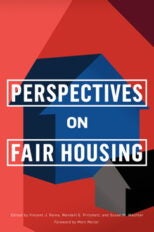H+U+D Seeking Graduate Student Research Proposals for 2021-22—05.03.21
H+U+D Seeking Graduate Student Research Proposals for 2021-22
Deadline: May 31, 2021
The Project in Humanities, Urbanism, and Design (H+U+D), invites graduate students to submit research proposals for Academic Year 2021-22. Small grants will be awarded to support projects that align with the mission of the H+U+D project.
H+U+D is a joint effort among the Schools of Arts and Sciences (SAS) and Design (PennDesign), and the Penn Institute of Urban Research (Penn IUR) whose objective is to promote synergies among the humanities and design disciplines. Beginning in 2018, the initiative takes “The Inclusive City” as its theme, focusing on issues of inclusivity and diversity. For more information on the initiative see: http://www.humanitiesurbanismdesign.com/
Graduate Research
Small research grants will be awarded to support interdisciplinary design/humanities projects undertaken by graduate students in humanities and design disciplines that focus on the built environment. Eligible research must draw from both humanities and design disciplines. Examples of eligible work include master’s thesis projects, independent study projects, and doctoral dissertation research. Preference will be given to projects related to the “Inclusive City” theme. The maximum award is $2,000 per proposal. Allowable research expenses include travel, archival charges, photography, books, research supplies and equipment. Examples of previously funded student projects are available to review here: http://www.humanitiesurbanismdesign.com/publication_category/student-research-2/
Application Instructions
The application should include
- Research project proposal (maximum: 500 words)
- Short itemized budget
- Unofficial Penn transcript
- Letter or recommendation from sponsoring faculty member, requested by the applicant via the Letter of Recommendation Request Form
Submit your proposal no later than May 31, 2021, to the Center for Undergraduate Research and Fellowships (CURF)via the student application:
https://www.curf.upenn.edu/content/project-humanities-urbanism-and-design.
A special awards sub-committee will review proposals, and funds will be transferred to successful applicants’ departments for disbursement. Questions? Contact Andrea Goulet (agoulet@sas.upenn.edu) or Daniel A. Barber (barberda@design.upenn.edu)

 University of Pennsylvania Press has published
University of Pennsylvania Press has published 

 Ty Redden joins the Mellon H+U+D Initiative from Gettysburg College, where she was Assistant Professor of Africana Studies. She is a graduate of Savannah State University and the University of Florida, having earned a Ph.D. in Design, Construction & Planning with specializations in race studies and housing policy. Her research explores development-forced displacement driven by mega-sporting events. Ty is a frequent presenter at the Association of Collegiate Schools of Planning and the Urban Affairs annual conferences, and is co-author of “Building the Foundation for Arnstein’s Ladder: Community Empowerment through a Participatory Neighborhood Narrative Process” in the forthcoming volume, Learning from Arnstein’s Ladder: From Citizen Participation to Public Engagement (co-edited by M. Lauria and C. Slotterback). She is appointed in the Department of Africana Studies (School of Arts and Sciences).
Ty Redden joins the Mellon H+U+D Initiative from Gettysburg College, where she was Assistant Professor of Africana Studies. She is a graduate of Savannah State University and the University of Florida, having earned a Ph.D. in Design, Construction & Planning with specializations in race studies and housing policy. Her research explores development-forced displacement driven by mega-sporting events. Ty is a frequent presenter at the Association of Collegiate Schools of Planning and the Urban Affairs annual conferences, and is co-author of “Building the Foundation for Arnstein’s Ladder: Community Empowerment through a Participatory Neighborhood Narrative Process” in the forthcoming volume, Learning from Arnstein’s Ladder: From Citizen Participation to Public Engagement (co-edited by M. Lauria and C. Slotterback). She is appointed in the Department of Africana Studies (School of Arts and Sciences). Syantani Chatterjee, who recently completed her PhD in Anthropology at Columbia University, is an anthropologist specializing in questions of urban citizenship and belonging in India. Her book project, which builds on her dissertation, examines the social worlds of the residents of Shivaji Nagar (Mumbai), also known as “Bombay’s Gas Chamber.” Her interest in exposure, and embodiment is reflected in her earlier field research among commercial gestational surrogates in India. In her award-winning Master’s Thesis at Columbia University, Caste in a New Mold: The rematerializing of caste in the biomedical universe of commercial surrogacy in India, she studied the emergence of new configurations of caste, and the endurance of earlier forms of the same in contemporary India, from within biomedical practices and discourses. Prior to pursuing doctoral studies, Chatterjee worked as a journalist for Reuters, the Associated Press and CNN. Her scholarship has received generous support from the American Institute for Indian Studies, Columbia University’s Lindt Dissertation Fellowship, and other endowments. Her publications appear in the International Journal of Labor and Working Class History, and PoLAR. She is appointed in the Department of Landscape Architecture (Weitzman School of Design).
Syantani Chatterjee, who recently completed her PhD in Anthropology at Columbia University, is an anthropologist specializing in questions of urban citizenship and belonging in India. Her book project, which builds on her dissertation, examines the social worlds of the residents of Shivaji Nagar (Mumbai), also known as “Bombay’s Gas Chamber.” Her interest in exposure, and embodiment is reflected in her earlier field research among commercial gestational surrogates in India. In her award-winning Master’s Thesis at Columbia University, Caste in a New Mold: The rematerializing of caste in the biomedical universe of commercial surrogacy in India, she studied the emergence of new configurations of caste, and the endurance of earlier forms of the same in contemporary India, from within biomedical practices and discourses. Prior to pursuing doctoral studies, Chatterjee worked as a journalist for Reuters, the Associated Press and CNN. Her scholarship has received generous support from the American Institute for Indian Studies, Columbia University’s Lindt Dissertation Fellowship, and other endowments. Her publications appear in the International Journal of Labor and Working Class History, and PoLAR. She is appointed in the Department of Landscape Architecture (Weitzman School of Design).